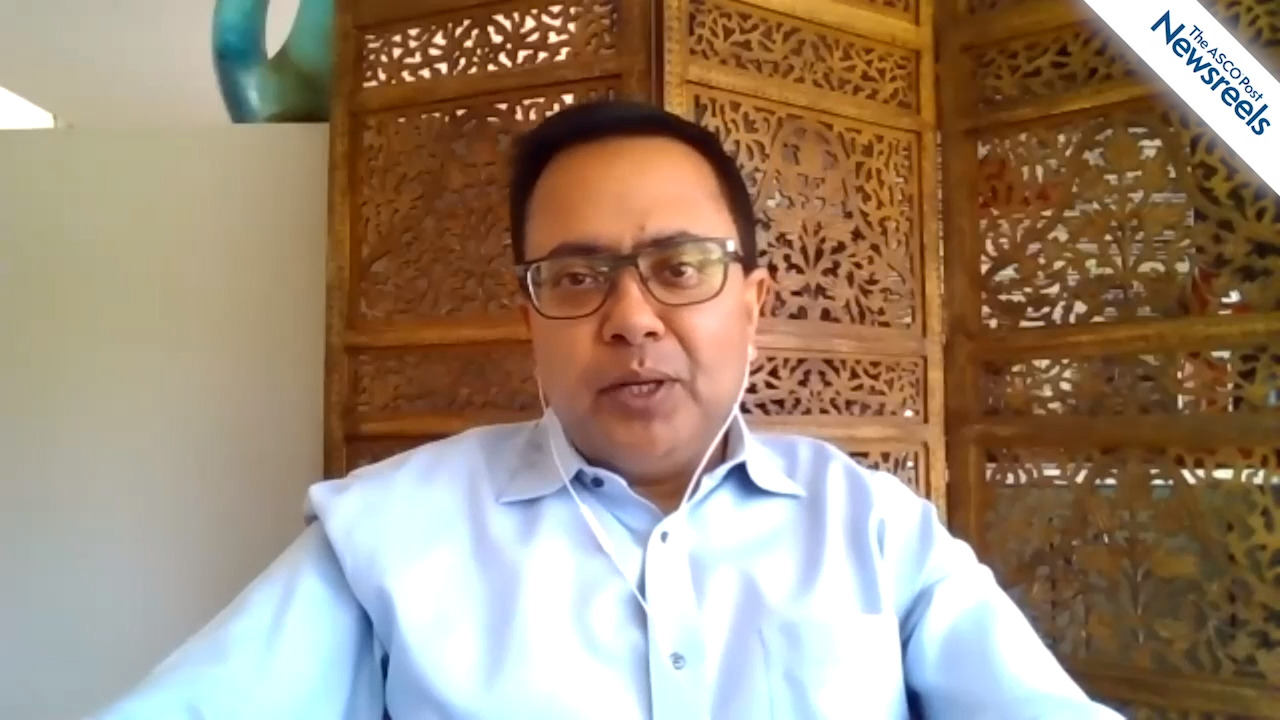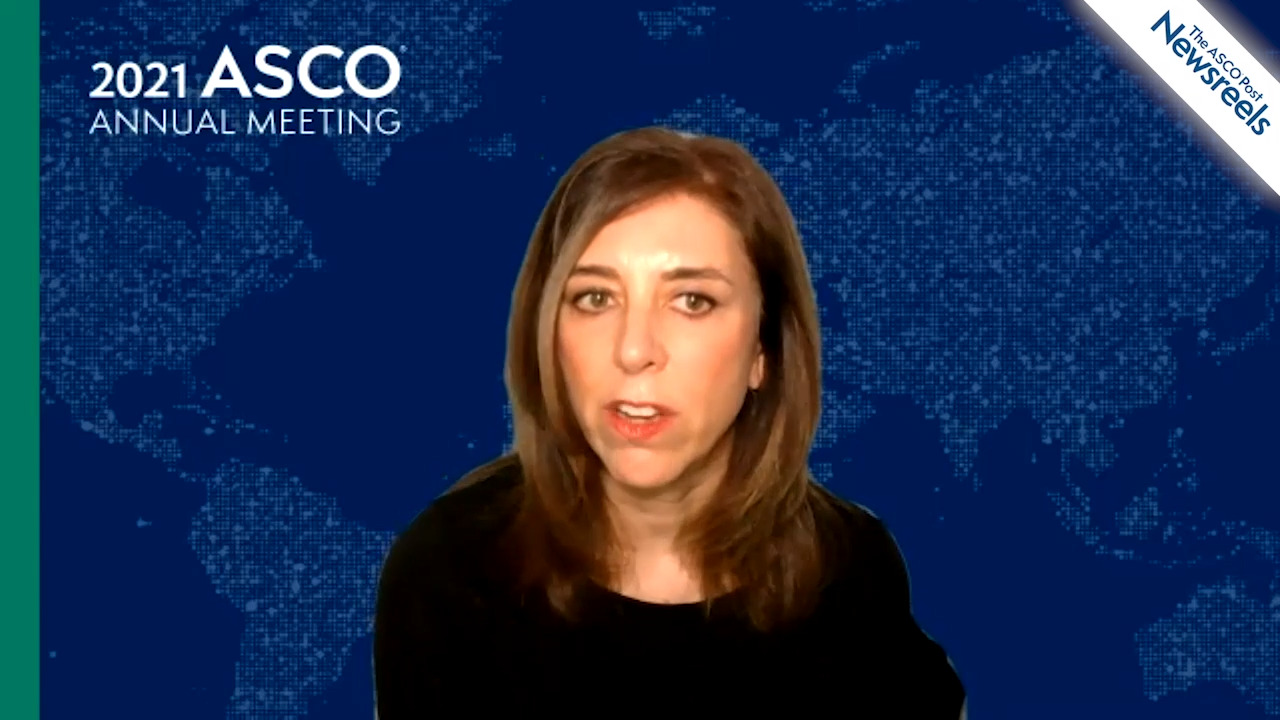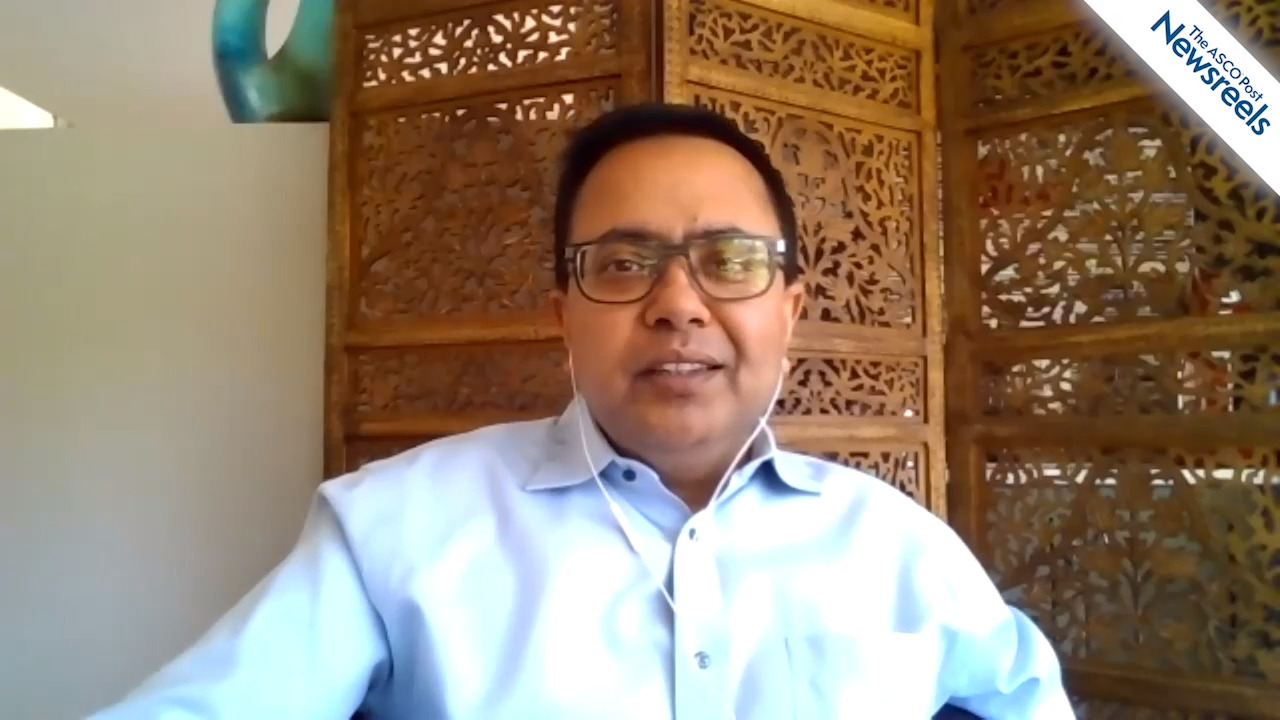Vamsidhar Velcheti, MD, on NSCLC: Sotorasib in KRAS-Mutated Disease
2021 ASCO Annual Meeting
Vamsidhar Velcheti, MD, of New York University, discusses overall survival and exploratory subgroup analyses from the phase II CodeBreaK 100 trial, which evaluated the use of sotorasib in pretreated KRAS G12C–mutant non–small cell lung cancer (Abstract 9003).
The ASCO Post Staff
Pasi A. Janne, MD, PhD, of Dana-Farber Cancer Institute, discusses study findings that show patritumab deruxtecan is effective in patients with EGFR-mutated and inhibitor-resistant non–small cell lung cancer. Dr. Janne also explains why targeting HER3, a mutation expressed in most EGFR-altered cancers, is a beneficial treatment approach (Abstract 9007).
The ASCO Post Staff
Neeraj Agarwal, MD, of Huntsman Cancer Institute at the University of Utah, discusses phase III data from the SWOG S1216 trial, which evaluated the clinical benefit of using androgen-deprivation therapy with either orteronel (or TAK-700, a CYP17 inhibitor) or bicalutamide in patients with newly diagnosed metastatic hormone-sensitive prostate cancer (Abstract 5001).
The ASCO Post Staff
Ann S. LaCasce, MD, of Dana-Farber Cancer Institute, discusses results from the CALGB 50801 Alliance study, which showed that a PET scan–adapted approach may reduce the need for radiation treatment and may improve progression-free outcomes in patients with stage I/II bulky classic Hodgkin lymphoma (Abstract 7507).
The ASCO Post Staff
Peter H. O’Donnell, MD, of The University of Chicago, discusses response and survival results from the phase II KEYNOTE-052 study, which showed that after up to 5 years of follow-up, pembrolizumab continued to elicit clinically meaningful, durable antitumor activity in cisplatin-ineligible patients with advanced urothelial cancer (Abstract 4508).
The ASCO Post Staff
Neeraj Agarwal, MD, of Huntsman Cancer Institute at the University of Utah, discusses three studies that examined real-world treatment patterns and utilization of advanced therapies in men with metastatic castration-sensitive prostate cancer, which served to highlight the ways in which Black men may be treated differently (Abstracts 5072, 5073, 5704).





